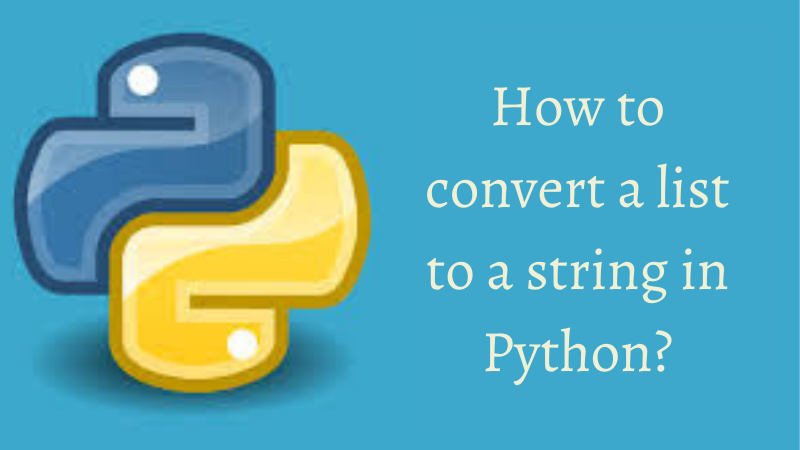
How to convert a list to a string in Python?
We can convert a given list into a string using the below-mentioned ways
- Using manual method
- Using join() method
- Using map() method
- Using list comprehension
Let’s discuss each one of these methods in detail.
Using manual method:
We have a list named demo_list with the following elements.
Example:
demo_list = ['Python ', 'by ', 'i2tutorials']
We take an empty string named emp_string and using a for loop, we iterate through each element and add that to the empty string. We put the complete code into a function named list_to_string and pass the demo_list as a formal argument.
Example:
def list_to_string(demo_list):
emp_string = ""
for ele in demo_list:
emp_string += ele
return emp_string
demo_list = ['Python ', 'by ', 'i2tutorials']
print(list_to_string(demo_list))Output:

Using join() function:
The join() method is a string method which returns a string in which the elements of the sequence have been joined by the str separator.
Syntax:
string_name.join(iterable)
This method takes an iterable like a List, a Tuple, a String, a Dictionary, a Set, etc. It returns a string concatenated with the elements of the given iterable. This method raises a TypeError exception if the iterable contains any non-string values.
Example:
def list_to_string(demo_list): emp_string = "" return (emp_string.join(demo_list)) demo_list = ['Python ', 'by ', 'i2tutorials'] print(list_to_string(demo_list))
Output:

The above code doesn’t work when the elements of the list are other than the string type. We need to first convert them to string type.
Using list Comprehension:
This is a one-liner alternative to the above method. We convert the element first into a string type object after traversing each element of the iterable and add this to the empty string using the join() string method.
Example:
demo_list = ['Python ', 'by', 'i2tutorials'] list_to_string= ' '.join([str(elem) for elem in demo_list]) print(list_to_string)
Output:

Using map():
The map() function returns a map object(which is an iterator) of the results after applying the given function to each item of an iterable like a list, a tuple, etc.
Syntax :
map(fun, iter)
- fun is a function to which map() passes each element of the given iterable.
- iter is an iterable which is to be mapped.
This function returns a list with elements after applying the given function to each item of a given iterable like a list, a tuple, etc.
Note: We can pass one or more iterables to the map() function.
Example:
demo_list = ['Python ', 'by', 'i2tutorials'] list_to_string= ' '.join(map(str, demo_list)) print(list_to_string)
Output:




